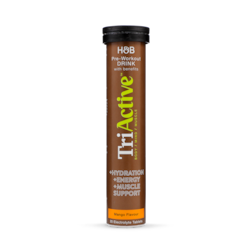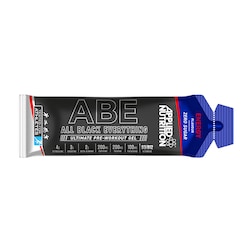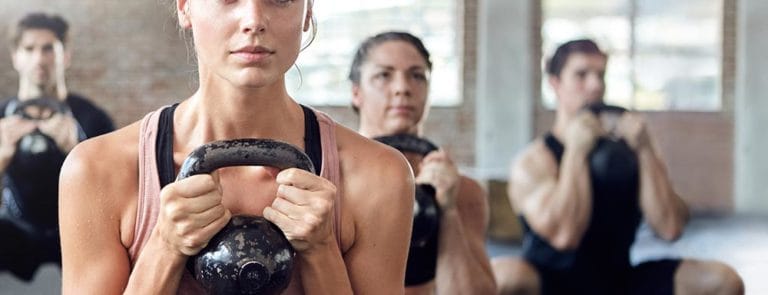15% off €35 or 20% off €45
Code:SUMMER
The pre-workout drinks you need to kickstart your training session

Need extra energy to power through your workout session? These pre-workout drinks are sure to give you a little pep in your step…
Our top picks
Supports energy and focus
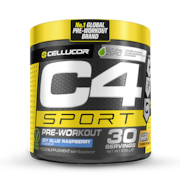
Cellucor
Cellucor C4 Sport Pre-Workout Icy Blue Raspberry 270g
Save up to 1/2 Price
18+
€22.10
€32.50
Essential pre-workout ingredients
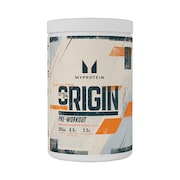
Myprotein
Myprotein Origin Pre-Workout Orange Mango Soda 600g
Save up to 1/2 Price
€29.00
€36.40
Helps support energy & performance
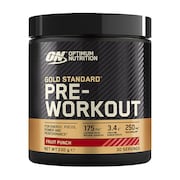
Optimum Nutrition
Optimum Nutrition Gold Standard Pre Workout Fruit Punch 330g
16+
€39.00
Before you hit the gym floor, roll out your mat or lace up your running shoes, making sure your body is fuelled right is so important to get the most out of your session.1
While the food you choose to power your workout is essential, the drink you choose might help too. Beyond hydrating your body, the right pre-workout drink could potentially support your performance and help you get more out of your movement.
So, get ready and get set, because here’s the lowdown on all you need to know about pre-workout drinks, plus our pick of the best to add to your basket.
Our favourite pre-workout drinks
Fuel your workouts with our Pre-Workout Tri Active Electrolytes effervescent tablets. A delicious mango drink with added vitamin C and magnesium to help support your energy, normal muscle function and hydration levels (when added to your favourite water bottle) whilst you work out.
Even better, there’s more flavours to choose from, like zingy ginger and lemongrass, so you can mix it up day after day.
To add to your pre workout routine, simply dissolve one tablet in 200ml water for a refreshing, on-the-go drink. Stick to one drink per day and don’t exceed the stated dose.
Myprotein
€36.40
€29.00
€4.83/100 g
Ignite your workouts with Myprotein’s potent pre-workout powder in a tropical orange and mango flavour. Packed with ingredients like beta-alanine, caffeine and essential vitamins, this pre-workout drink is designed to fuel your training.
Mix two scoops of powder with 300ml of water, shake well and drink around 30 minutes before exercising. Stick to one drink per day and don’t exceed the recommended dose.
Fuel your workouts on-the-go with Applied Nutrition’s ABE ultimate pre-workout gel. In a convenient sachet, each gel offers 200mg of caffeine, 3g of creatine, 2g of beta-alanine, 4g of citrulline malate and B vitamins.
Have one sachet 15 minutes before the start of your workout, and ideally on an empty stomach. No mixing required, simply sip straight out of the sachet. Only have one a day though and store in a cool place.
When it comes to pre-workout drinks, C4 by Cellucor covers your bases. Taken 30 minutes before your training session, this electrifying pre-workout drink combines creatine, arginine, beta-alanine, taurine and caffeine with electrolytes, for energy. Magnesium supports energy-yielding metabolism.
Please note this product is not suitable for those under the age of 18.
Mix one level scoop of powder with 200-250ml of water around 30 minutes before exercising. Stick to the recommended daily dose and store in a cool, dry place.
Boost your workout with Optimum Nutrition’s gold standard pre-workout powder. Featuring a delicious fruit punch flavour, this formula features beta-alanine, citrulline, L-carnitine, N-acetyl-tyrosine and B vitamins, plus caffeine and creatine.
Simply mix one level scoop of powder with 350ml of cold water and enjoy! Make sure to stick to the recommended serving of one per day and don’t exceed the recommended amount of powder. This pre-workout powder also isn’t suitable for people under the age of 16.
What’s the best pre-workout drink?
Before you start your workout, you should consume a good balance of carbohydrates, protein and fluids to give you all the fuel and hydration you need to perform at your best.2,3
While most of these nutrients should typically come from healthy whole foods, you can also reach for pre-workout drinks to get an energy boost.4,5 These usually contain nutrients like carbohydrates, caffeine, amino acids (molecules that the body uses to make protein), creatine (a substance that supplies energy to your muscles) and vitamins, which can also help support you alongside a healthy balanced diet.4,6
These drinks come in various forms, including protein shakes, protein smoothies, electrolyte drinks and energy drinks.
Whatever your sport or exercise regime may be, carbohydrates are crucial for providing energy. Protein is also necessary for recovery, so if you’re giving your muscles a good workout, a drink that contains both nutrients is a great starting point.2,7
We also know, from some emerging studies, that moderate doses of caffeine may have a positive impact on physical performance. So, if you’re feeling tired and in need of an energy kick, having a caffeinated drink pre-exercise could help you make the most of your workout.8,9
When you choose a pre-workout drink, check the label on the bottle or mix packet to see the nutrient values per portion. Comparing product labels in this way is a great way to choose the best drink for you, as you can better gauge nutritional factors like calories, protein and caffeine content.
What pre-workout drink options are there?
As well as the nutrient contents, the taste and texture of your pre-workout drink are also important to consider. After all, these drinks come in all sorts of forms and flavours – from bottled fruity electrolyte drinks to self-mix dessert-like protein shakes.
It’s important to remember that pre-workout drinks aren’t a one-size-fits-all. So, weigh up the pros and cons of each to land on a product that works for your workout needs, as well as your tastebuds.
Aside from specific pre-workout drinks, you could also try…
Electrolytes are minerals like salt (sodium), potassium, calcium, magnesium, chloride and bicarbonate that circulate in your blood.10 They can help to regulate many functions within the body, including nerve and muscle function.10
As you exercise and sweat, your body loses electrolytes and water. Drinking an electrolyte drink before, during and/or after a workout can support these minerals in your body.11,12
Electrolyte drinks also contain carbohydrates, so sipping on these can be a great way to fuel your body before a workout. They can also be good to sip on during long or vigorous training sessions when you need an energy boost.13 However, a potential drawback is that they're often high in sugar, so check the labels to make sure it’s right for you.14
While there are lots of bottled electrolyte drinks available, you can also find them in tablet, sachet and even chewable form. So, they’re easily adaptable to your dietary and workout needs.
Protein plays a crucial role in the growth and repair of muscles.15 For this reason, many people like to have a protein shake after their workout.
However, research in a small population of 21 resistance-trained men showed that the effectiveness of protein on muscle repair is actually more or less the same whether it’s consumed before or after a workout. But more research in larger sample sizes is needed.16
Protein shakes can be bought pre-mixed or as powders to mix with water or milk of your choice. They come in a range of flavours and are a delicious way to get some extra nutrients.
But remember, protein shakes are a supplement, so they should be seen as an addition to a balanced diet, not a replacement. Take a look at our guide on how to use protein powders for some of our top tips.
You should also know that some protein products come with extra calories in the form of added oils and sugars. This can impact your results if you're looking to lose weight, so make sure you read the label, so you know what exactly you’re drinking.14,17
The final say
Whether you’re grabbing a drink on-the-go, or have time to make a protein smoothie, there are plenty of pre-workout drink options available to help deliver the nutrients you need before you kickstart your sessions.
It’s important to take the time to consider which is the best option for your specific needs and lifestyle or consult a nutritionist or healthcare professional if you need help deciding. Plus, remember to stay hydrated and enjoy a balanced meal alongside pre-workout drinks.
This article provides informational advice and is not a substitute for medical care. Curated by experts for accuracy, we take great care to ensure the information is up-to-date and relevant. However, you should always consult your GP or healthcare professional before using supplements or alternative products, particularly if you have medical conditions or are under supervision.
1. Sport and exercise | British Nutritional Foundation [Internet]. British Nutrition Foundation. 2024 [cited 2024 Jun 18]. Available from: https://www.nutrition.org.uk/creating-a-healthy- diet/sport-and-exercise/
2. The Association of UK Dieticians. Sport and Exercise [Internet]. [cited 2024 April 30]. Available from: https://www.bda.uk.com/resource/sport-exercise-nutrition.html
3. Ormsbee M, Bach C, Baur D. Pre-Exercise Nutrition: The Role of Macronutrients, Modified Starches and Supplements on Metabolism and Endurance Performance. Nutrients [Internet]. 2014 Apr 29 [cited 2024 Jun 18];6(5):1782–808. Available from: https://www.ncbi.nlm.nih.gov/pmc/articles/PMC4042570/
4. Collins, PB., et al. Short-term effects of a ready-to-drink pre-workout beverage on exercise performance and recovery. Nutrients. 2017;9(8):823. Available from: https://www.ncbi.nlm.nih.gov/pmc/articles/PMC5579616/.
5. Diet and Exercise: Choices Today for a Healthier Tomorrow [Internet]. National Institute on Aging. 2023 [cited 2024 Jun 18]. Available from: https://www.nia.nih.gov/health/healthy-eating-nutrition-and-diet/diet-and-exercise- choices-today-healthier-tomorrow
6. Lopez MJ, Mohiuddin SS. Biochemistry, Essential Amino Acids [Internet]. Nih.gov. StatPearls Publishing; 2024 [cited 2025 Feb 18]. Available from: https://www.ncbi.nlm.nih.gov/books/NBK557845/
7. British Heart Foundation. Food for fitness [Internet]. British Heart Foundation. 2025 [cited 2025 Feb 18]. Available from: https://www.bhf.org.uk/informationsupport/heart-matters-magazine/nutrition/food-for-fitness
8. Guest NS, VanDusseldorp TA, Nelson MT, Grgic J, Schoenfeld BJ, Nathaniel, et al. International society of sports nutrition position stand: caffeine and exercise performance. Journal of the International Society of Sports Nutrition [Internet]. 2021 Jan 2 [cited 2025 Feb 18];18(1). Available from: https://pubmed.ncbi.nlm.nih.gov/33388079/
9. Lopez MJ, Mohiuddin SS. Biochemistry, Essential Amino Acids [Internet]. Nih.gov. StatPearls Publishing; 2024 [cited 2025 Feb 18]. Available from: https://www.ncbi.nlm.nih.gov/books/NBK557845/
10. NHS website. Electrolyte test [Internet]. nhs.uk. 2018 [cited 2025 Mar 24]. Available from: https://www.nhs.uk/conditions/electrolyte-test/
11. Orrù S, Imperlini E, Nigro E, Alfieri A, Cevenini A, Polito R, et al. Role of Functional Beverages on Sport Performance and Recovery. Nutrients [Internet]. 2018 Oct 10 [cited 2025 Feb 18];10(10):1470. Available from: https://pmc.ncbi.nlm.nih.gov/articles/PMC6213308/
12. Baker LB, John P, Ungaro CT, Sopeña BC, Nuccio RP, Reimel AJ, et al. Exercise intensity effects on total sweat electrolyte losses and regional vs. whole-body sweat [Na+], [Cl−], and [K+]. European Journal of Applied Physiology [Internet]. 2018 Dec 6 [cited 2025 Feb 18];119(2):361–75. Available from: https://link.springer.com/article/10.1007/s00421-018-4048-z
13. Silva MRG, Paiva T, Silva HH. The Impact of Sports and Energy Drinks in Performance. Elsevier eBooks [Internet]. 2019 Jan 1 [cited 2025 Feb 18];183–204. Available from: https://www.sciencedirect.com/science/article/abs/pii/B9780128158517000061
14. Tomke PD, Rathod VK. Additionally Added Ingredients and Enrichment of Beverages: An Overview. Elsevier eBooks [Internet]. 2019 Jan 1 [cited 2025 Feb 18];1–35. Available from: https://www.sciencedirect.com/science/article/abs/pii/B9780128166871000011
15. Protein and exercise. Protein and exercise [Internet]. British Heart Foundation. 2025 [cited 2025 Feb 18]. Available from: https://www.bhf.org.uk/how-you-can-help/events/training-zone/nutrition-for-sporting-events/protein-and-exercise
16. Schoenfeld BJ, Aragon A, Wilborn C, Urbina SL, Hayward SE, Krieger J. Pre- versus post-exercise protein intake has similar effects on muscular adaptations. PeerJ [Internet]. 2017 Jan 3 [cited 2025 Feb 18];5:e2825–5. Available from: https://pmc.ncbi.nlm.nih.gov/articles/PMC5214805/
17. Cintineo HP, Arent MA, Antonio J, Arent SM. Effects of Protein Supplementation on Performance and Recovery in Resistance and Endurance Training. Frontiers in Nutrition [Internet]. 2018 Sep 11 [cited 2025 Feb 18];5. Available from: https://pmc.ncbi.nlm.nih.gov/articles/PMC6142015/

